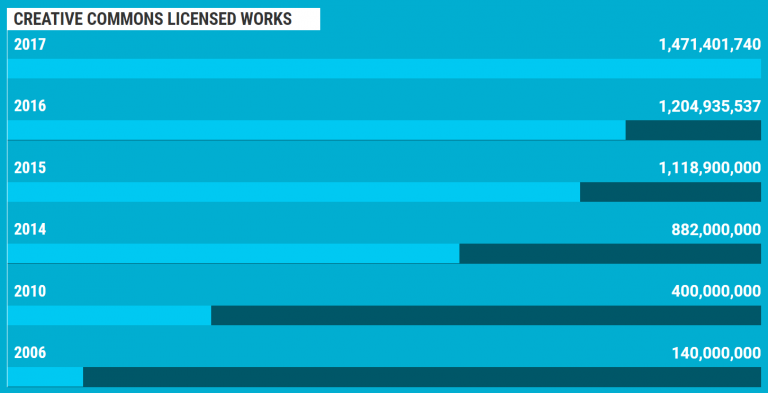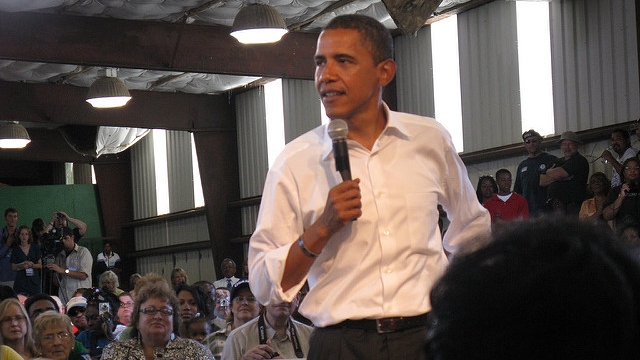
Report profiles the work of Creative Commons in supporting open knowledge
Knowledge managers can’t be expected to make the best evidence-based decisions if they can’t readily access high-quality evidence, so here at RealKM Magazine we’re strong advocates for, and supporters of, open knowledge and information.
One organization demonstrating significant leadership in regard to open knowledge and information is Creative Commons.
Creative Commons creates, maintains, and promotes the Creative Commons licenses – free, international, easy-to-use copyright licenses that are the standard for enabling sharing and remix.
You’ll see extensive use of Creative Commons licenced material on the RealKM website. This includes source material for articles (example – note the article source attribution at the end of the article), and many of our article header images (example – note the header image source attribution at the end of the article). We’ve also published the RealKM Open KM Syllabus under a Creative Commons license. (And, while we don’t publish our articles under a Creative Commons license, we’re very happy to give permission for most of them to be republished in full with attribution. Please contact us if you’d like to enquire about doing this for any article.)
The Creative Commons organization recently released its State of the Commons 2017 report, offering insights into the global state of open knowledge and information and how Creative Commons is supporting this.
The insights of greatest potential relevance to knowledge managers are featured here, and further information can be found in the report itself which is presented in an easy-to-read web format.
Number of Creative Commons (CC) licensed works
Total number of CC works

Numbers of CC works shared by major platforms
- Flickr image and video hosting website, 415.1 million
- YouTube video-sharing website, 49 million
- Wikipedia online encyclopaedia, 46.7 million
- DeviantArt online art exhibition, promotion, and sharing network, 40 million
- Wikimedia Commons online repository of free-use images, sound, and other media files, 36.9 million
- Europeana online platform for access to digitized European cultural heritage, 28.7 million
- Vimeo video-sharing website, 6.6 million
- Internet Archive online platform for access to free books, movies, software, music, websites, and other resources, 3.1 million
- Directory of Open Access Journals (DOAJ) online directory for indexing and providing access to open access, peer-reviewed academic journals, 2.7 million
- Thingiverse 3D printable design sharing website, 2.3 million
- 500px photo sharing website, 1.2 million
- Medium online publishing website, 740,896
- Jamendo Licensing online music licensing service, 556,126
- PLOS open access publisher, 200,000
- Free Music Archive (FMA) online music download library 114,969
Key Creative Commons (CC) initiatives
CC Certificates
To better teach open tools and practices to communities around the world, Creative Commons has developed open educational resources and a certification program called the CC Certificate.
The CC Certificate program is a training program that leads people through the basics about the organization, copyright law, and the CC tools. The goal is to equip people with the knowledge and skills they need to advocate for and support adoption of CC licensing in their work and creative pursuits.
The training is initially focused on two groups: academic librarians and educators. The certificate for these two segments runs as a 12-week online course facilitated by an instructor fluent in the issues and opportunities surrounding CC licensing and open collaboration.
The underlying course content will also be freely available to the public and CC-licensed, including text, images, and videos.
New CC Search tool
Despite the tremendous growth of Creative Commons, and the widespread use of the CC licenses and public domain marks, there has been no simple “front door” to maximize use of, and engagement with, all of that content.
The Creative Commons’ “CC Search” project is developing an open online search and re-use tool that will allow high-quality content from the Commons to surface in a more seamless and accessible way.
A prototype of CC Search has been released, and user feedback is invited.
Campaigning against proposed EU copyright laws
The Create Refresh campaign is a new project to highlight the concerns of creators regarding the EU’s proposed changes to copyright law. Creative Commons is one of a number of supporting organisations.
Create Refresh is “calling on creators to be part of a movement to defend their right to create. [The] ultimate aim is to inspire a new solution for digital copyright that protects all creators and their careers.”
The initiative focuses on Article 13 of the European Commission’s copyright proposal, which would require all online services that permit user-generated uploads to install filters that can automatically detect, flag, and censor copyrighted material before the content even hits the web. The provision would apply to websites such as Facebook, YouTube, Instagram, Flickr, and even noncommercial sites like Wikipedia.
Such a problematic requirement could be in conflict with other fundamental rights enshrined in existing EU law.
Create Refresh comes to the same conclusion as CC and dozens of other civil society organisations calling for a progressive copyright that protects both users and the public interest in the digital environment.
Article source: The Creative Commons content used in this article is licensed under CC BY 4.0.
Header image source: Creative Commons.
Also published on Medium.





